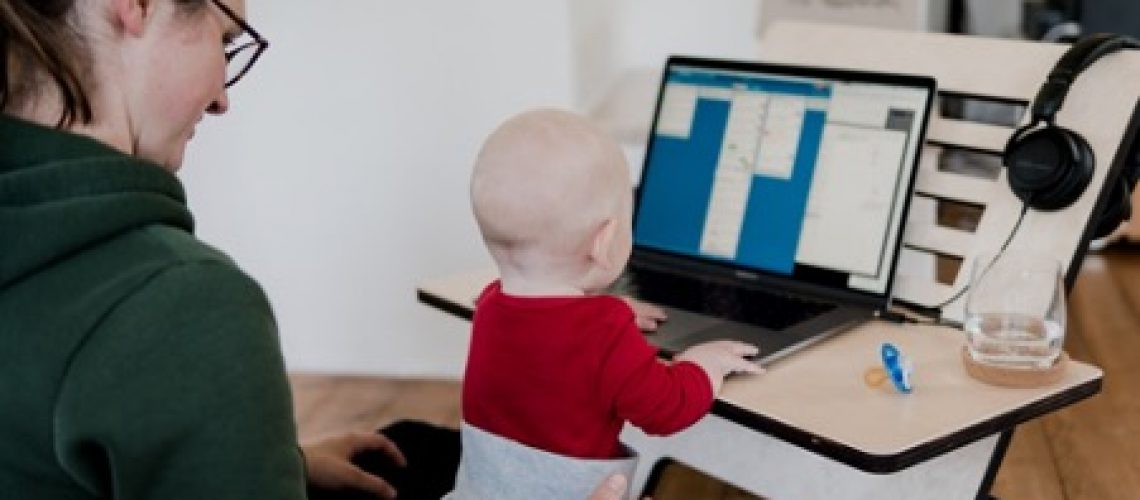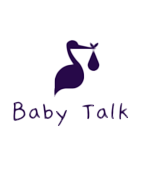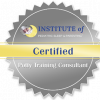Around the 6 months to 12 months mark is when most parents are returning to work after a period of staying at home with their new baby. Many mums would prefer to stay at home but due to circumstances need to return to work. This is not only a big change for the primary carer, but also a very big change for baby. We are designed to be close to our babies so going back to work is never easy, leaving your baby with someone new and in a new environment can feel a little frightening the first few times, and this new experience will naturally impact your baby.
All these feelings are very normal and natural.
Here are a few tips for preparing to head back to work.
1.Take time to reflect on how you feel about the transition.
Its important that you feel confident about the nursery or childminder you have chosen for your baby. Babies pick up on any anxiety and fear you may be feeling around any situation. They are aware of how you feel at any time, night, or day. If you have any doubts about the choices, you have made it is important that you address this early and try to figure out why you are feeling this way.
Weeks prior to returning to work build upon your relationship with your baby’s keyworker. If you have someone looking after your child within your home invite them to start several weeks earlier that way, they can observe how you do things with your baby, and this will help both of you to build up trust.
2 Check if your nursery or child minder allows visits before you begin.
Being able to spend time in your baby’s new carers environment will not only help to build up your confidence but also your child’s confidence too. As your baby sees you relaxed and confident in the new environment your baby will feel happy in this new environment too.
It also gives you an opportunity to find out how things are and what they are doing so that when you think of your child whilst you are at work, you can visualise them being happy within the new environment.
If you can leave your baby there for a short period a couple of times before the real transition happens this will help your baby to build up on their confidence and understand that they are ok in this environment and that you will return after their stay.
3.Ask questions.
Find out when the children take their naps, have their lunch and snacks. What is the general daily routine? Asking these questions will help you to link your daily routine with theirs helping to make the transition flow a little easier.
A lot of mums are afraid to ask their carer these questions, but they are important to help make the home and nursery / childminder become one with caring for your little one. And once again will help with building that trust necessary for you to feel confident when you return to work.
4 Plan to transition from breastfeeding (if you are breastfeeding).
If it is important to you to continue to give your baby breastmilk, then you will need to find out if it is possible to be able to pump at work and provide pumped milk to the nursery or childminder? Is your baby’s new day care happy to store and keep pumped breastmilk? If you are both breastfeeding and formula or just purely providing formula milk for your little one, you will need to know how and when feeding will occur within your child’s new place.
5 Make sure that you have the support at home.
If you are currently waking a few times at night to tend to your baby, make sure you have the support of family members to help especially through this transition. It is likely that until your baby gets used to the change, they will wake more frequently looking for connection time at night. Also, because they are getting used to their new sleeping space during the day, naps may be missed and your baby may be fussy at the end of the day, increasing night waking.
6 When the time to start work and your little one’s transition into their day care.
Make sure to take time with the drop off and pick up times to engage and interact with the people in front of your baby. This will not only help to ease any anxiety that you may be feeling but will also show your baby that you are confident with your choice and that you like and trust the people who are spending the whole day with your baby.
When you return home make sure that you do not rush the evenings, and you fully focus on your baby ensuring that you are not distracted with work or other disturbances. This is important so that your little one feels that they are getting your full attention and will ease their separation anxiety. Try to maintain their usual routine and maintain with things as they were before you began with the transition. Remember your little one needs that connection time with you to best move through this new change in their life.
Try not to make any major changes to sleep, as exhausted as you may be, during this transition. Build up their confidence within their new life now and you can work on any changes needed a little later.










